Music teacher: features of the profession and training

The upbringing and spiritual development of modern children entirely depends on the professionalism of music teachers. It is this school subject that helps to form the personal qualities of students. Of the complete set of artistic impact, musical education is the most accessible. Music is capable of touching the most secret corners of the soul, awakening subdued feelings, and causing an emotional outburst.
Musical education maximally affects the spiritual world of a person, especially a child. It is not for nothing that mothers, while waiting for the baby, listen to classic tunes. Music education is taught to schoolchildren by a highly qualified teacher. Let us consider in more detail the features of the profession and training of a music teacher.
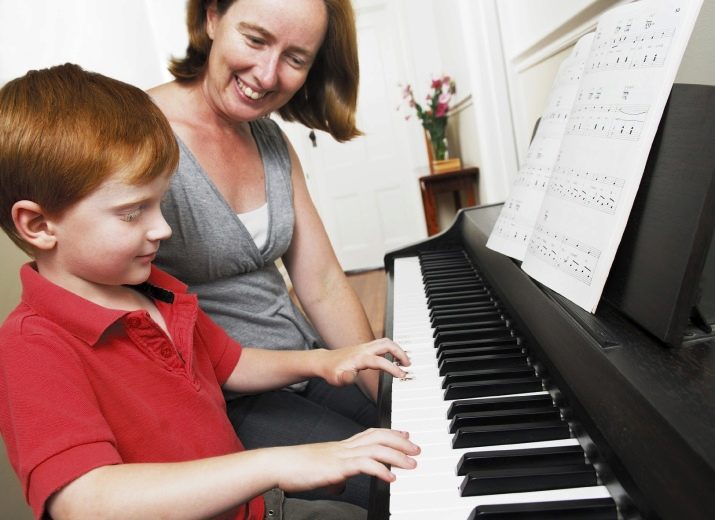
Description
In the pedagogical staff of kindergartens and schools, there are teachers of art disciplines. They are responsible for the development and formation of cultural and emotional literacy in students. However, the greatest contribution to such a serious matter is made by music teachers. They are also the main carriers of musical theoretical knowledge, which is the basis of their work. In addition to developing artistic literacy, the music teacher must reveal the child's musical preferences. In simple terms, he must determine who likes to sing and who likes to play musical instruments. And if possible, try to help the child develop talent.
A music teacher must be proficient in the professional field. He must know musical genres, be able to explain the difference between Beethoven's and Schubert's melodies.It is the music teacher who will be able to tell what techniques of musical technique Freddie Mercury used.
Few people know, but well-known classical composers at one time conducted teaching activities, for example, Chopin or the Rubinstein brothers.

Pros and cons of the profession
It seems to many that the job of a music teacher is the easiest. That in the process of teaching children, teachers do not have problems and difficulties. In fact, this is a misconception. Like any other profession, the position of teaching music has a number of advantages and disadvantages. First, you should consider the advantages of this work, namely:
- a teacher is not a profession, but a vocation; a music teacher who loves his job will be able to help his students to reveal their musical potential;
- the volume of teachers' leave is the envy of anyone - 2 months in summer and a week's rest between quarters;
- high profit payment music teachers working in private schools;
- in free time from school music teacher may receive additional income through tutoring;
- the job of a music teacher is very exciting - every day you have to solve many creative issues, if necessary, prepare musical numbers for matinees and even lead a singing circle.
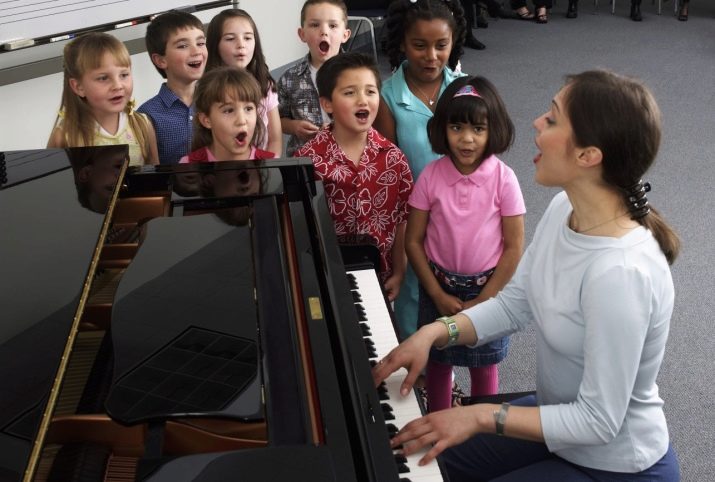
Now we can consider the disadvantages of the profession of a music teacher, namely:
- music teacher work in educational institutions always accompanied by stress - a day it is necessary to conduct classes in at least five classes, each has 30 children, each child needs an individual approach; and also meetings with parents are possible and not always for good reasons;
- a music teacher needs to be prepared to a full working day;
- a music teacher, a person with a refined soul, it is extremely difficult to work with naughty, lazy and restless schoolchildren;
- low salary in public high schools and kindergartens;
- huge load - a music teacher must draw up a daily work plan, write reports, keep school records.
Only this is not a complete list of the advantages and disadvantages of the profession of a music teacher.
In general, a teacher of any direction should take their work seriously. But not everyone is capable of this. In such cases, it is better to look for an alternative. A damaged reputation will not be helped by any diplomas, certificates and regalia.

Job responsibilities
For teachers of music discipline, there is a certain list of job responsibilities, which must be performed in full.
- Music teacher is obliged to teach and educate students according to the specifics of their subject... For each new lesson must develop a teaching plan. Maintain professional records, reports, classroom journal and student diaries. The music teacher must take an active part in the examination board.
- The teacher is also responsible for monitoring compliance with safety rules... This is training in a safe environment, the ability to provide first aid, if necessary, briefing on labor safety.
- The teacher of musical discipline is obliged to admit representatives of the school administration to their lessonsand also replace lessons from absent teachers. He must unquestioningly follow the orders of the management and comply with the internal regulations. A music teacher should know the rights of schoolchildren and be guided by them in the learning process. He is obliged to interact with the parents or guardians of his students.
- Like any other teacher, music teacher is obliged to take refresher courses. Take an active part in methodological work, in pedagogical councils, at meetings of an industrial nature and parent meetings.The music teacher is obliged to keep watch at the school according to the approved schedule.
- Since the work of a teacher is related to children, it is important for him to undergo regular medical examinations. If any health problems are identified, he should notify the school management.
- Educator is obliged to observe ethics in communication with colleagues, parents and children. He should be an example for his students by all personal criteria.
- The teacher who gave the last class lesson obliged to take schoolchildren to the cloakroom. If the end of the lesson coincides with the meal time, the music teacher should take his pupils to the dining room, and then hand the children over to the class teacher.
- Besides, a music teacher is obliged to engage in conducting concerts and matinees for schoolchildren. Take an active part in the development and conduct of extracurricular activities, as well as conduct music Olympiads.


Requirements
The list of requirements for a music teacher is very long. Unfortunately, not every specialist is ready to boast of such a large set of technical knowledge. Still, hands-on experience can play a huge role. Today, a music teacher is required to:
- experience in conducting planned and unscheduled activities;
- practical knowledge of organizing and conducting lessons;
- the ability to perform the repertoire of choral and vocal genres;
- knowledge of playing various musical instruments;
- experience in conducting professional documentation.
A music teacher should be able to:
- use teaching aids and relevant literature;
- prepare audio material for teaching;
- use pedagogical methods to organize the teaching of schoolchildren;
- organize holidays;
- build trusting relationships with children and their parents;
- identify students with musical potential and guide them in skill development.
But the most important requirement for a music teacher is to know the basics of educational psychology, because it is extremely necessary to work with children.
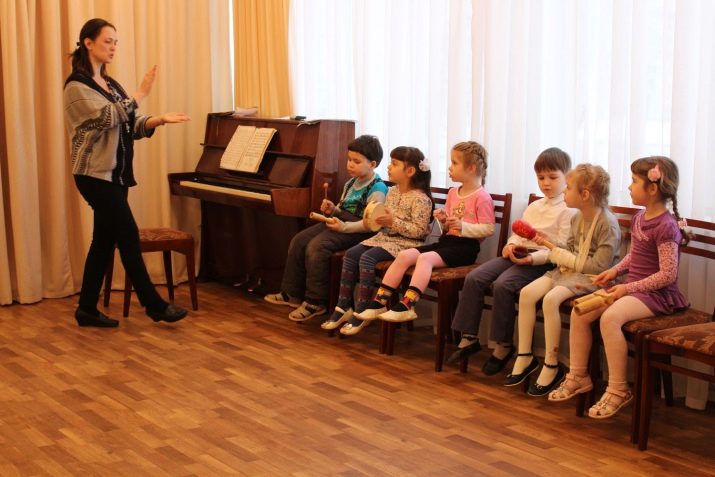
Knowledge and skills
A music teacher must have a musical education. A foreign diploma is widely encouraged. He must play the piano perfectly, understand musical genres and be able to present his knowledge in a fun way.
In addition, a music teacher must have general pedagogical skills, because he will have to work with children, if necessary, even be a psychologist.
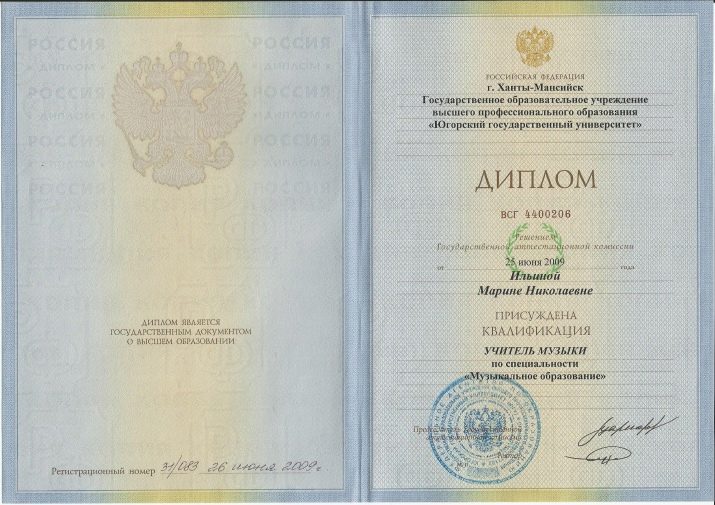
Personal qualities
Besides professional skills, a music teacher must have a number of personal characteristics, namely:
- a music educator must have creativity;
- he must understand the intricacies of cultural values;
- he should adhere to peace of mind.
Without these qualities, it will be extremely difficult for a music teacher to work in school and teach children.

Rights and responsibilities
Like any highly qualified professional, a music teacher has certain rights that he can exercise at any time. For example, a music teacher is eligible for continuing education courses. The school administration, in turn, creates the necessary conditions for the training of its employee. And also a music teacher at his own request, he can pass certification to obtain a category.
In terms of rest, a music teacher may require a reduction in the working week. He is allowed to go on extended leave. And at the end of his seniority, a music teacher is entitled to a pension, taking into account the length of service. A music teacher has the right to certain social benefits, to participate in the management of the general educational process.
But the most important thing is that a teacher of musical discipline has the right to defend honor and dignity, which is extremely important in our time.
Under the labor law, a music teacher has a certain responsibility. The educator will be responsible for the following:
- failure to complete the full scope of the educational program;
- life and health of schoolchildren;
- violation of students' rights.
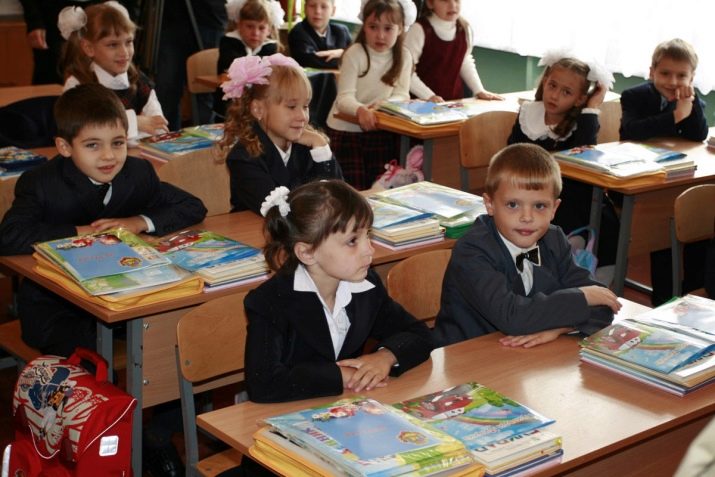
Education and career
For any teacher, career growth plays an important role - it is an opportunity to assert yourself, an increase in wages. In general, the salary of a music teacher among budget-funded professions is considered worthy. However, this applies only to highly qualified specialists. Teachers who put their heart and soul into their work, have great knowledge and are active in social work, receive wage increments. But these sums cannot be compared with the remuneration of top managers or leading specialists of private companies. But if the music teacher takes on extra work, such as classroom leadership, his salary will be significantly higher.
People who are not related to pedagogical work do not know what career heights an ordinary music teacher can achieve. Upon completion of refresher courses and passing pedagogical trainings he can easily become a methodologist or can apply for the position of deputy director of an educational institution.
The main thing is not to stand still, but to try to improve and strive to achieve the set goals. Moreover, such an aspiration will be appreciated by the pupils and will certainly take note of it.









